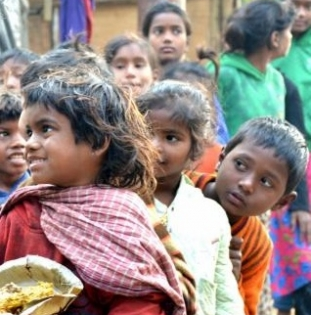Pakistan’s army pockets billions of dollars amid persistent poverty, deep economic crisis
By IANS | Updated: August 30, 2025 14:00 IST2025-08-30T13:59:29+5:302025-08-30T14:00:19+5:30
New Delhi, Aug 30 While Pakistan’s middle class has been hammered by stagnant wages, rising prices, and declining ...

Pakistan’s army pockets billions of dollars amid persistent poverty, deep economic crisis
New Delhi, Aug 30 While Pakistan’s middle class has been hammered by stagnant wages, rising prices, and declining economic opportunity, the country’s army has quietly transformed itself into the country’s largest business conglomerate, wielding remarkable influence across almost every economic sector in the country, according to a new report.
According to the report in europeantimes.org, the scale, power and privileges enjoyed by army business empire, known as “Milbus”, have made it a parallel state within a state, often benefitting its officers at the cost of ordinary Pakistani citizens.
“As of 2025, foreign estimates place the military’s business footprint at tens of billions of dollars annually, a staggering sum for a country grappling with persistent poverty and economic crisis,” the report revealed, citing data from the Economic Policy and Business Development (EPBD) think tank which launched the country’s Wealth Perception Index 2025.
The index is a ranking of the country’s 40 leading business groups across both the public and private sectors. The index reveals 10 publicly listed companies each valued at over $1 billion, with the Fauji Foundation topping the list at $5.9 billion, followed by some corporate giants.
As Pakistan wrestles with severe economic challenges, plummeting industrial output, dollar shortages, and rising energy costs, “clout of these top-tier Pakistan Army led enterprises reflect deeper structural realities about wealth and power in the country,” the report highlighted.
The stark reality is that Pakistani military’s ventures are not confined to the defence industry.
“Entities such as the Fauji Foundation, Army Welfare Trust, and Defence Housing Authority (DHA) command assets in banking, agriculture, manufacturing, real estate, education, and retail. These organizations benefit from tax exemptions, privileged access to state land, and regulatory protections that insulate them from normal market competition,” the report mentioned.
The result is vast concentration of resources and profits in the hands of serving and retired military officers, while civilian business faces constant constraints.
The increasing stranglehold of the military Generals on Pakistan's economy is diverting the country's resources for defence expenditure amid rising poverty and unemployment levels in the country. Despite the crisis-ridden economy merely managing to survive on IMF loans, the military seems to be facing no constraints on its spending spree on weapons such as tanks and planes.
Pakistan's per capita income has stagnated and even declined in recent years, reflecting deepening economic challenges. Compared to regional peers, Pakistan's GDP per capita remains significantly lower - estimated at $6,950 in 2025. The economic disparity between urban and rural regions further entrenches inequality, according to a latest article in Pakistan's newspaper 'Observer'.
According to the World Bank's 2025 findings, nearly 44.7 per cent of the population lives below the poverty line, based on the revised threshold of $4.20 per person per day for lower-middle-income countries, a staggering figure that underscores the scale of deprivation.
Even more alarming is that 16.5 per cent of the population, around 39.8 million people, live in extreme poverty, earning less than $3 per day, a sharp rise from previous estimates of 4.9 per cent, the article said.
Disclaimer: This post has been auto-published from an agency feed without any modifications to the text and has not been reviewed by an editor
Open in app